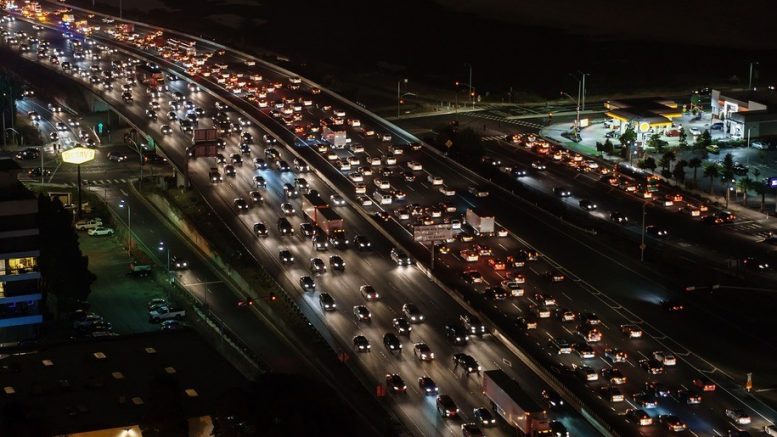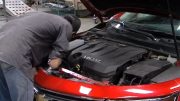The filing would allow [California and New York] to defend the mandates, which will require auto manufacturers to hit fuel economy standards of 54.5 miles per gallon by the year 2025.
“California is forward-leaning,” Attorney General Xavier Becerra (D) said Wednesday. “For us, clean air, good-paying jobs and quality of life go hand-in-hand. For us, there’s no turning back in the fight against pollution.”The AAM had urged the Trump regime—specifically Environmental Protection Agency chief Scott Pruitt—to revisit an upgrade of the fuel efficiency standards, known as the Corporate Average Fuel Economy (CAFE). These were originally imposed in 1975 because of the oil embargo of that era. The Obama administration negotiated a phase-in of the upgraded standards with a beleaguered auto industry in 2010-2011, and they took effect in 2012.
In its “mid-term review” of the federal standards prescribed for the 2022-25 model years, the EPA determined in January 2017 that the record supports imposing even stricter standards, but it chose “to retain the current standards to provide regulatory certainty for the auto industry.” But that wasn’t good enough for the industry, whose leaders saw some hope of changing matters in their favor with the arrival of Trump and his fossil fuel-saturated marionettes at the White House.
Many in the industry had expressed doubts in 2011 that the 54.5 mpg goal for the nation’s passenger car fleet could be reached after 26 years being stuck at 27.5 mpg. But at an average of 36-37 mpg for their 2017 models, manufacturers are right where they should be in the effort to double fuel efficiency. Not only will this increased efficiency reduce costs to motorists, it will also cut the amount of carbon pollution emitted into the atmosphere. That’s a win-win twofer.
But in its letter to Pruitt, the AAM said the technical hurdles in the way of reaching the 54.5 mpg goal are too difficult and will cost too much money, with the higher prices passed along to consumers. Both of these complaints are the same kind the car industry has raised in the past on installing everything from smog controls to safety belts to airbags in every car. It sometimes seems a miracle that cars have rearview mirrors.
The 10-member coalition—Vermont, Maine, Maryland, Massachusetts, New York, Oregon, Rhode Island, Washington State, the District of Columbia, and Pennsylvania—issued a statement regarding its intervention. Here’s an excerpt:
President Trump’s action represents a dramatic wrong turn in our nation’s efforts to fight air pollution from passenger cars and trucks, and protect the health of our children, seniors, and all communities.
Weakening these commonsense standards would undermine successful efforts to combat the pollution emitted by vehicles – emissions that cause widespread, substantial harm to public health and are one of the largest sources of climate change pollution. An extensive technical study by the Environmental Protection Agency already found that the standards are fully and economically achievable by the auto industry. Relaxing them would increase the air pollution that is responsible for premature death, asthma, and more – particularly in our most vulnerable communities.
We will vigorously oppose attempts by the Trump Administration to weaken our vehicle emission policies and put our public health at risk, and we won’t hesitate to stand up for the right of our states to adopt stricter pollution standards that provide critical protections to the health of our residents and our environmental resources.”
The Trump regime is determined to reduce federal employment, federal enforcement budgets, and federal regulations. But one thing that clearly won’t be reduced over the next few years is litigation.
Source: www.dailykos.com




